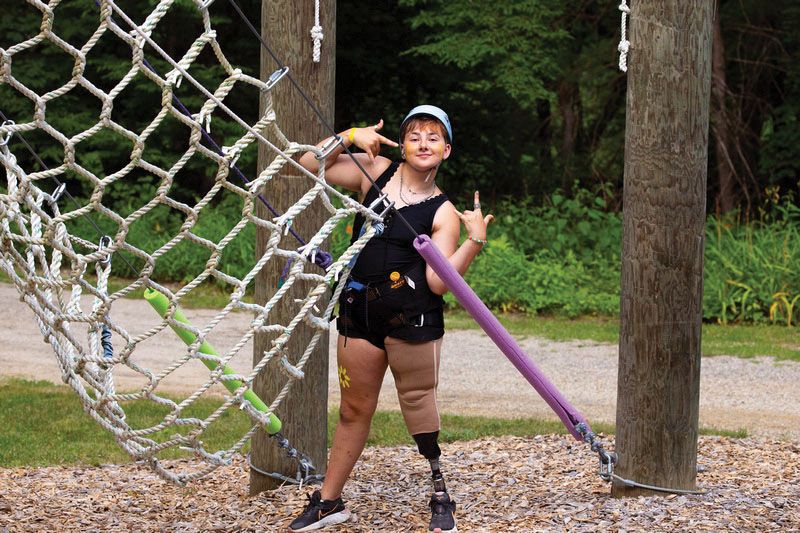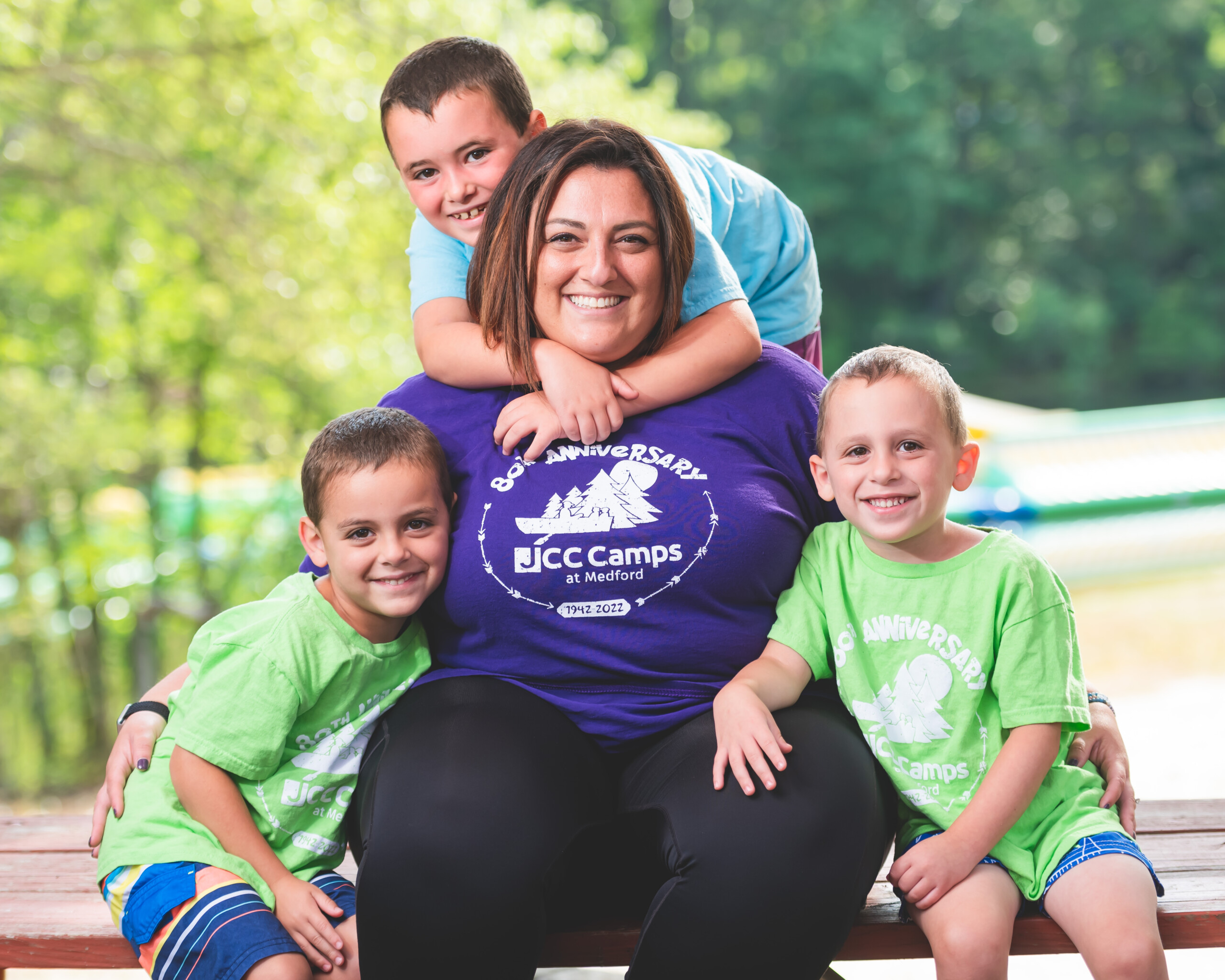Listening to children play at the Children’s House Montessori Day Camp in Wilmington, DE, you might not notice the cultural diversity of the campers.
Although more than a third of the campers, ages 15 months to 7 years old, speak nearly a dozen native languages, children tend to speak only English with English-speaking friends. But at snack time, when director Cathy Cooling encourages parents to share their heritage and food each week, campers might get a taste of India, China, Turkey or Germany.
Overcoming Differences
Michael Shelton of the American Camp Association (ACA), author of Multiculturalism in Camps and Youth Programs (Healthy Learning, $19.95), says one benefit of summer camp is that “campers not only learn to appreciate adventure, they learn to adapt to the diversity of temperament and personality of their fellow campers.”
“Living in a small cabin group of peers certainly exposes campers to differences,” he says. The camp experience has a unique ability to bring children together from varying economic, racial, geographic, religious and ethnic backgrounds.
“A multicultural, diverse camp is a great way to break down the social barriers that prevent positive interaction among children,” says Nick Maraini, director of Camp Garrett, a day camp in Newtown Square, PA serving economically disadvantaged children ages 5-12.
Don Jennings, summer camp director at YMCA Camp Mason, believes that any camp gives children a safe place to experiment with tolerance, acceptance and being true to themselves, away from the influences of media and school peers. Children soon learn that the negative behaviors that may have helped them fit in at school or on neighborhood streets are not part of the camp culture.
Camp Mason runs both day and overnight camps at its Hardwick, NJ facility. Children come from widely different communities, and also meet staff from all over the world.
“We tell kids that camp is a place where we try to be our best selves for a few weeks at a time,” says Jennings, “and that while we’re here, we’re all going to be honorable and respectful in our relationships, we’re going to experiment with new activities, make new friends and try to grow — and then we’re going to take these new best selves with us and try to remember them at home.”
International Communities
Like Camp Mason, many camps offer children the opportunity to interact, often for the first time, with counselors from other countries and cultures. In 2006, more than 26,000 international staff from 100 countries worked in camps across the U.S., mostly through the cultural exchange visa program administered by the State Department’s Bureau of Educational and Cultural Affairs.
“Camps choose to invite international staff to their camps because it enhances their program goals and furthers their youth development objectives,” says ACA official Sharon Kosch. “A lesson in global understanding is probably never more enjoyable. The details will be re-mem- bered for years to come.”
One of Camp Mason’s most popular events is International Day. At the event, campers get “passports” to visit booths created by counselors and other campers sharing the customs and costumes of their native countries. “Parents really value the multicultural experience that kids get at camp. They know it helps children see the world from lots of different viewpoints,” says Jennings.
Kuhn Day Camp and College Settlement Camp, which share facilities in Horsham, PA, also celebrate multiculturalism in an International Day that features the food and culture of about 15 countries represented by campers and international staff.
Common Bonds
At College Settlement Camp, an outgrowth of a South Philadelphia settlement house founded in 1889, “Diversity is a core value,” says director Frank Gerome.
“Our volunteer recruiters, who are retired teachers, social workers and school counselors, work hard to reach out to children from all over the city and suburbs. They come from different backgrounds and communities, but we do a lot of team-building activities to bring them together. Their common experience is camp,” he says.
For many children, camp is an opportunity to step outside the cliques of school and make new friends in a nurturing environment that promotes diversity, understanding and cooperation.
At camps where children from diverse backgrounds may share a group or cabin, kids learn to cooperate to achieve a common goal.
Camp Mason’s Don Jennings says, “At camp, where a wide range of children may find themselves in the same group, they quickly learn that they have to make plans together, work together and live together. At the end of the day, each group has a cabin chat to reflect on their experiences, discuss how they’re getting along and figure out how they might do things differently or better. This is how we help kids grow.”
Specific Cultures
Young children can also build common bonds at summer camps dedicated to a particular language and culture, where children from any ethnic background are welcome and the only requirement is a desire to learn and have fun.
At French for Fun, a French immersion day camp run by the French International School of Philadelphia in Bala Cynwyd, PA, children ages 4-9 learn French by playing, singing, cooking and making crafts with native French speakers.
Al-Bustan Camp uses nature, storytelling, drama, dance, art and music to teach children and teens ages 6-17 the Arabic language and Arab culture, in a day camp at Springside School in the Chestnut Hill section of Philadelphia. Al-Bustan, which means “The Garden” in Arabic, welcomes children of all backgrounds in an environment that promotes dialogue, respect, understanding, and diversity. Both French for Fun and Al-Bustan Camp will run July 6-24.
Whether day or overnight, traditional or specialty, diverse kinds of camps promote unity and an appreciation of the differences among campers. And that’s why, Frank Gerome says, “Camp prepares young people to make a positive impact on the world.”
Ellen Warren writes for the American Camp Association Keystone Section, serving families in Pennsylvania and Delaware. www.acakeystone.org






